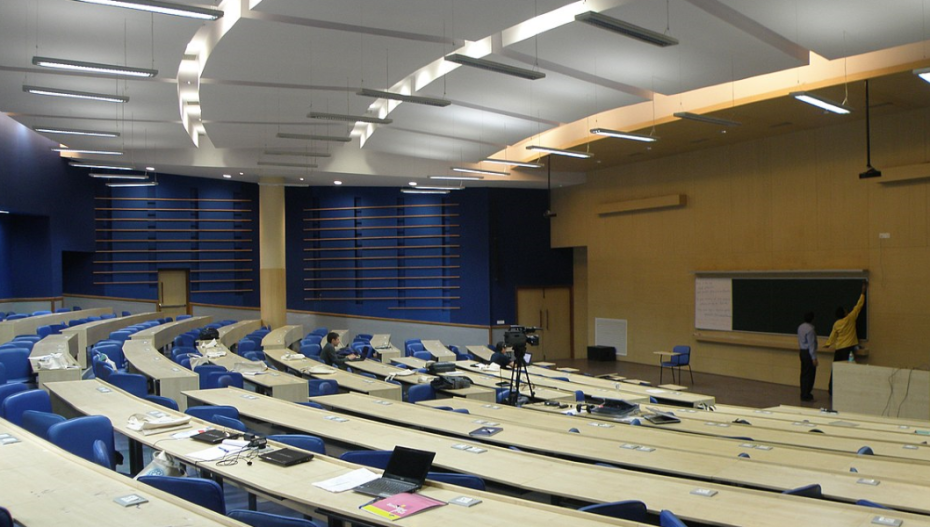New Delhi: The number of students who committed suicide in India rose by 70% between 2011 and 2021, Moneycontrol reported.
Today (September 10) is World Suicide Prevention Day. In India, its observance comes just days after coaching centre hub Kota recorded its highest number of student suicides since 2015 and two Dalit students at IIT Delhi committed suicide within two months.
Data provided by the National Crime Records Bureau (NCRB) says that 13,089 students died by suicide in 2021 (the year of its latest report on suicides).
This represents a 70% increase from 7,696 student suicides in 2011.
The number of student suicides in India since 2011 has generally increased every year.
Data: NCRB’s Accidental Deaths and Suicides in India reports.
The share of students among India’s overall suicide victims has also increased. It stood at 8% of the total in 2021, having grown by 2.3 percentage points since 2011.
For both the number and share of student suicides in India, an uptick is observed in the year 2020.
Data: NCRB’s Accidental Deaths and Suicides in India reports.
While the NCRB’s Accidental Deaths and Suicides in India (ADSI) reports do not provide a breakdown of the reported causes for suicide among students specifically, they provide these breakdowns for age groups.
Discounting “other” or unknown causes, the most frequent cause of suicide listed by NCRB’s 2021 ADSI report for victims below 18 years of age was family problems (3,233 cases, or 30% of the total in this age group).
This was followed by “love affairs” (1,495 cases, or 14% of the total), illness (1408 cases, or 13% of the total) and “failure in examination” (864 cases, or 8% of the total).
Mental illness made up the majority of cases listed under illness (58%).
The share out of Indians of all age groups that ADSI reports say committed suicide due to “failure in examination” has an average value of 1.8% and a median of 1.77% between 2011 and 2021.
The reported shares for this cause remained between 1.8% and 2.0% between 2011 and 2019, falling to 1.4% in 2020 and and 1.0% in 2021.
Failure in examination was listed as the cause of suicide in 1,673 cases in 2021. Out of this, 991 victims were male and 682 were female. NCRB did not attribute any transgender suicides to this cause in 2021.
Also Read: ‘Academic Distress’ and Student Suicides in India: A Crisis That Needs to be Acknowledged
NCRB’s data also has a breakdown of suicides by city. In 2019 – the last year of its reports where classes were held in-person – the bureau recorded 136 suicides from Kota, out of which it attributed seven to “failure in examination”.
The Indian Express reported that according to Kota police data, a total of eight students committed suicide in the city in 2019.
Now that classes have gone back to offline mode, student suicides have risen again in Kota. Citing Kota police data, IE‘s report says that the number of student suicides rose from zero in 2021 to fifteen in 2022.
This year has so far seen 23 student suicides in the city (with four in August itself), the highest since 2015, during which 17 students committed suicide according to the city’s police department.
Kota’s district administration has responded by directing hostels and paying guest accommodations to install spring-loaded fans in every room “to provide mental support and security to the students studying/living in them”.
Nelson Vinod Moses, founder of the Suicide Prevention of India foundation, told Moneycontrol that the COVID-19 pandemic caused an increase in mental health struggles among young adults in India.
“During this period, [young adults] were dependent on digital learning, and when they were put back into the normal world, many were unable to even communicate properly, develop friendships, and bond socially,” he said.
The financial news outlet also reported that the 2020 National Education Policy reinforced the importance of counselling systems within education institutions.
But Itisha Nagar, an assistant professor of psychology at Delhi University, told The Wire that societal factors must be addressed in tandem with providing counselling to students.
“Just giving counselling to a student will not matter much, because society defines a ‘successful’ student as someone who clears IITs or such competitive exams by defeating lakhs of other students. We need a society where a kid’s worth is tied to talent or extra-curricular activities or hobbies they enjoy, not marks,” she said.
If you know someone – friend or family member – at risk of suicide, please reach out to them. The Suicide Prevention India Foundation maintains a list of telephone numbers they can call to speak in confidence. Icall, a counselling service run by TISS, has maintained a crowdsourced list of therapists across the country. You could also take them to the nearest hospital.
This article was first published by TheWire
Also Read: To Curb Accidents, Ahmedabad To Have Speed Radars At Busy Junctions












